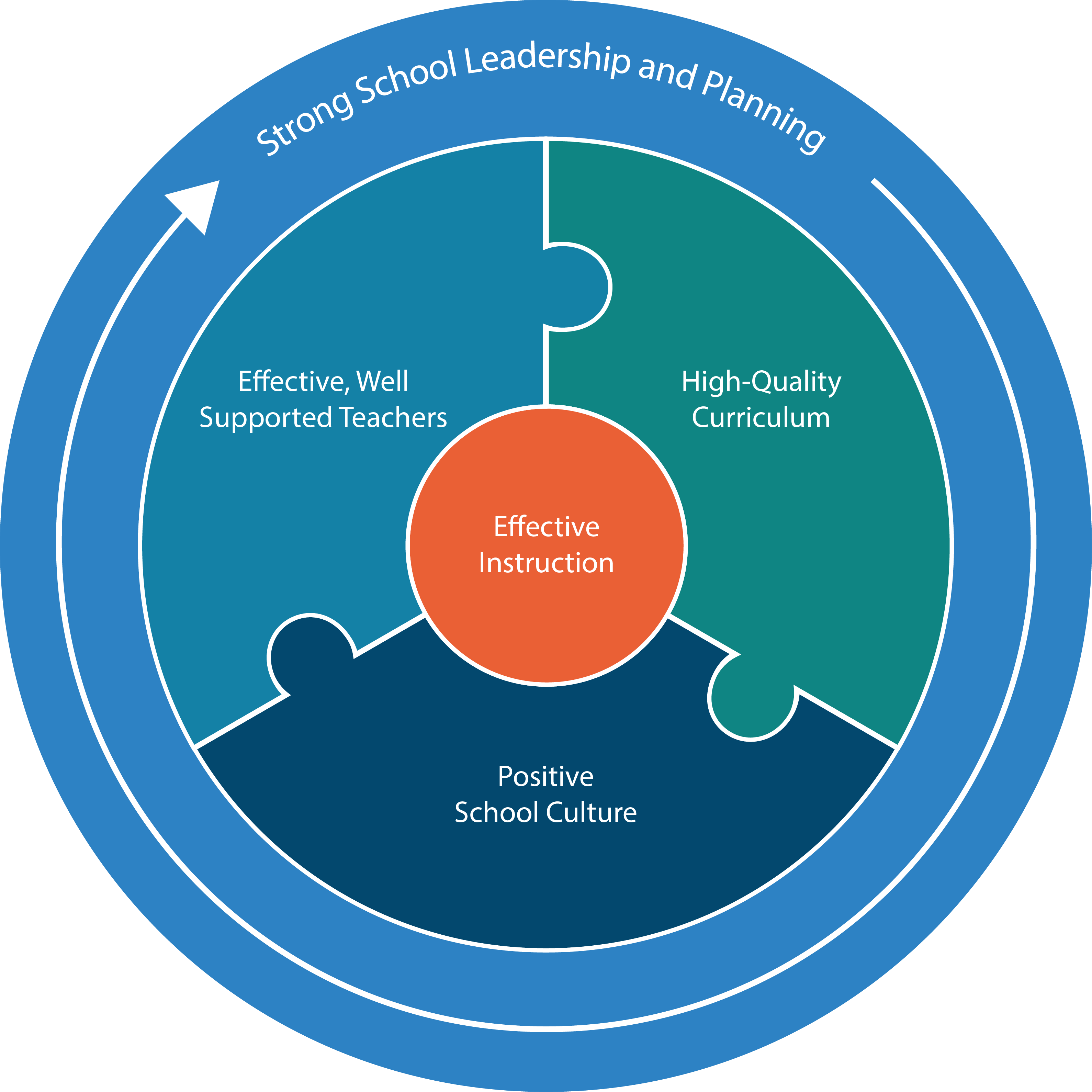School Improvement and Effective School Framework
School Improvement
Region 18 ESC is proud to partner with TEA and the Center for Effective Schools in providing a clear vision for what districts and schools should do to ensure an excellent education for all students. This process is called the Effective School Framework or ESF. Region 18 ESF facilitators work with campuses across the region to develop a comprehensive plan to build in structures and processes to support collaboration between the LEAs and Region 18 in all school improvement efforts. The goal is to support TEA’s priority of improving student performance through systemic change based on essential actions within the ESF.

The Effective School Framework


Prioritized Lever 1
STRONG SCHOOL LEADERSHIP AND PLANNING
Effective campus instructional leaders with clear roles and responsibilities develop, implement, and monitor focused improvement plans that address the causes of low performance.

Prioritized Lever 2
STRATEGIC STAFFING
Campus leadership retains effective, well-supported teachers by strategically recruiting, selecting, assigning, and inducting teachers so that all students have access to high-quality educators.

Prioritized Lever 3
POSITIVE SCHOOL CULTURE
Campus systems support positive school culture through explicit behavioral expectations, school-wide culture routines, proactive and responsive student support services, and involved families and communities.

Prioritized Lever 4
HIGH-QUALITY INSTRUCTIONAL MATERIALS AND ASSESSMENTS
All students engage daily with TEKS-aligned, high-quality instructional materials, and assessments that support learning at appropriate levels of rigor.

Prioritized Lever 5
EFFECTIVE INSTRUCTION
Campus leaders provide teachers with job-embedded professional development, including observation and feedback cycles, and access to time and data needed to reflect, adjust, and deliver instruction that meets the needs of all students.

texasesf.org | Effective Schools Framework
ESF website-
https://texasesf.org/
What is the ESF Diagnostic Process?
The ESF diagnostic process is a collaborative approach for all districts and campuses that want to fine-tune their plans for continuous improvement.
Through evidence collection, focus group interviews, and campus observations, an ESF facilitator from your local education service center works side-by-side with the campus principal and the principal’s supervisor to determine 2 to 3 high-leverage focus areas for campus improvement.
96% of campuses who went through the ESF Diagnostic Process last year said their focus areas for improvement will guide their work in the upcoming school year and 92% said the diagnostic process was a productive use of their time.
Campuses interested in opting into an ESF diagnostic please contact us. We will be happy to help you diagnose areas of need and assist you in matching these areas with Vetted Improvement Programs.

 Additional settings for Safari Browser.
Additional settings for Safari Browser.









